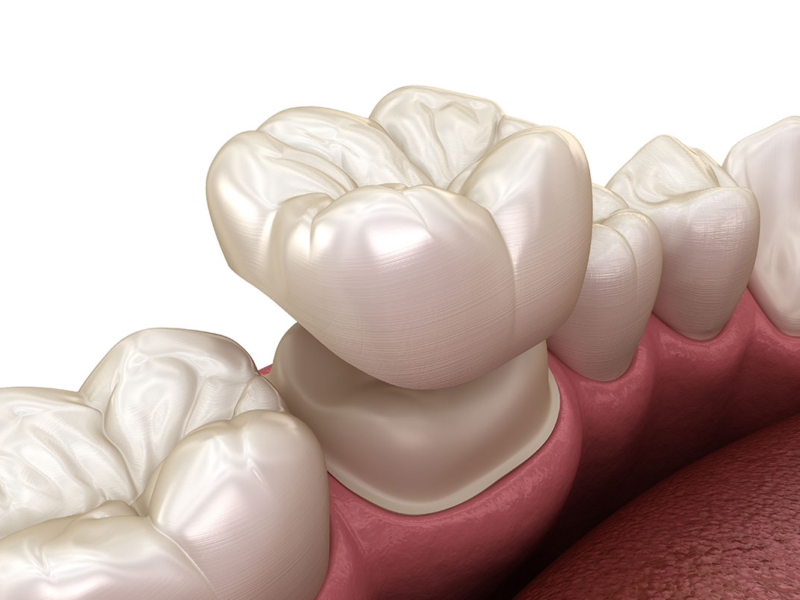Dental Crowns come with a lot of benefits. They can prevent a weak tooth from breaking and also help in strengthening the overall tooth. In addition, they also:
• Restore a tooth that’s broken or severely worn down.
• Cover and support a tooth with a large filling when there isn’t a lot of natural teeth left.
• Hold a dental bridge in place.
• Cover severely discolored teeth.
• Restore a dental implant.
• Be used for cosmetic reasons to make your smile look better.
Benefits of Dental Crowns

Duration and Benefits
On an average, dental crowns last 5-15 years. The life span of a crown depends on how much wear and tear it’s exposed to and how well you care for your teeth. Crowns help avoid grinding or clenching your teeth while chewing ice, biting your fingernails, or using your teeth to open the packaging.
Because a tooth is crowned doesn’t mean it’s protected from decay or gum disease. You’ll need to keep caring for your teeth and gums, including brushing your teeth at least twice a day and flossing once a day – especially where the gum meets the crown. Using an antibacterial mouth rinse can be of further help. Regular dental hygienist appointments are a chance to get your crown checked and cleaned thoroughly.
A crown can prevent a weak tooth from breaking and hold parts of a cracked tooth together.
Dental crowns can also:
• Restore a tooth that’s broken or severely worn down
• Cover and support a tooth with a large filling when there isn’t a lot of natural teeth left
• Hold a dental bridge in place
• Cover severely discolored teeth
• Restore a dental implant
• Be used for cosmetic reasons to make your smile look better

Frequently Asked Questions
How long do dental crowns last?
Does a crowned tooth need special care?
What types of crowns are available?







